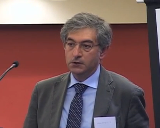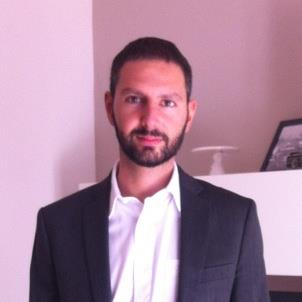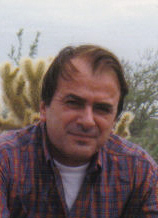Studying at the University of Verona
Here you can find information on the organisational aspects of the Programme, lecture timetables, learning activities and useful contact details for your time at the University, from enrolment to graduation.
Academic calendar
The academic calendar shows the deadlines and scheduled events that are relevant to students, teaching and technical-administrative staff of the University. Public holidays and University closures are also indicated. The academic year normally begins on 1 October each year and ends on 30 September of the following year.
Course calendar
The Academic Calendar sets out the degree programme lecture and exam timetables, as well as the relevant university closure dates..
| Period | From | To |
|---|---|---|
| Sem. 1A | Oct 4, 2010 | Nov 14, 2010 |
| Sem. 1B | Nov 15, 2010 | Jan 16, 2011 |
| Sem. 2A | Feb 21, 2011 | Apr 10, 2011 |
| Sem. 2B | Apr 11, 2011 | Jun 5, 2011 |
| Session | From | To |
|---|---|---|
| Sessione invernale (A.A. 2009-2010) | Jan 17, 2011 | Feb 20, 2011 |
| Sessione estiva (esami sospesi dal 5 all'8 luglio) | Jun 6, 2011 | Jul 31, 2011 |
| Sessione autunnale | Sep 1, 2011 | Sep 30, 2011 |
| Session | From | To |
|---|---|---|
| Sessione estiva - 1° appello | May 27, 2011 | May 27, 2011 |
| Sessione estiva - 2° appello | Jul 8, 2011 | Jul 8, 2011 |
| Sessione autunnale | Nov 18, 2011 | Nov 18, 2011 |
| Sessione invernale | Mar 16, 2012 | Mar 16, 2012 |
| Period | From | To |
|---|---|---|
| All Saints | Nov 1, 2010 | Nov 1, 2010 |
| National holiday | Dec 8, 2010 | Dec 8, 2010 |
| Christmas holidays | Dec 22, 2010 | Jan 6, 2011 |
| Easter holidays | Apr 22, 2011 | Apr 26, 2011 |
| National holiday | Apr 25, 2011 | Apr 25, 2011 |
| Festa dei lavoratori | May 1, 2011 | May 1, 2011 |
| Local holiday | May 21, 2011 | May 21, 2011 |
| National holiday | Jun 2, 2011 | Jun 2, 2011 |
| Summer holidays | Aug 8, 2011 | Aug 15, 2011 |
Exam calendar
Exam dates and rounds are managed by the relevant Humanistic Studies Teaching and Student Services Unit.
To view all the exam sessions available, please use the Exam dashboard on ESSE3.
If you forgot your login details or have problems logging in, please contact the relevant IT HelpDesk, or check the login details recovery web page.
Should you have any doubts or questions, please check the Enrollment FAQs
Academic staff
 stefania.annechini@univr.it
stefania.annechini@univr.it
 nicoletta.bersani@univr.it
nicoletta.bersani@univr.it
 mario.dalcorso@univr.it
mario.dalcorso@univr.it
 roberto.dallachiara@univr.it
roberto.dallachiara@univr.it
 francesca.feliziani@univr.it
francesca.feliziani@univr.it
Frighetto Roberta
 roberta.frighetto@univr.it
roberta.frighetto@univr.it
 annamaria.giarola@univr.it
annamaria.giarola@univr.it
Monici Francesco
 francesco.monici@univr.it; francesco.monici@hotmail.it; presidente@elsaverona.it
francesco.monici@univr.it; francesco.monici@hotmail.it; presidente@elsaverona.it
 0376607115
0376607115
 raffaele.morello@univr.it
raffaele.morello@univr.it
 mauro.niero@univr.it
mauro.niero@univr.it
 diego.romaioli@univr.it
diego.romaioli@univr.it
Strano Silvana
 silvana.stranoligato@univr.it
silvana.stranoligato@univr.it
 +39 045 8028856
+39 045 8028856
Study Plan
The Study Plan includes all modules, teaching and learning activities that each student will need to undertake during their time at the University.
Please select your Study Plan based on your enrollment year.
1° Year
| Modules | Credits | TAF | SSD |
|---|
Un insegnamento a scelta tra i seguenti2° Year activated in the A.Y. 2011/2012
| Modules | Credits | TAF | SSD |
|---|
3° Year activated in the A.Y. 2012/2013
| Modules | Credits | TAF | SSD |
|---|
| Modules | Credits | TAF | SSD |
|---|
Un insegnamento a scelta tra i seguenti| Modules | Credits | TAF | SSD |
|---|
| Modules | Credits | TAF | SSD |
|---|
Legend | Type of training activity (TTA)
TAF (Type of Educational Activity) All courses and activities are classified into different types of educational activities, indicated by a letter.
General and family sociology (2011/2012)
The teaching is organized as follows:
Learning outcomes
Module: SOCIOLOGIA DELLA FAMIGLIA
-------
The course places the objective of giving reading instruments in order to comprise the recent social dynamic that have invested the familiar relations. Although the family acts in the sphere of the private relations, it is one complex social construct that regulated the relationships between the gender and the generations, carrying out functions of social mediation and integration. In the contemporary society these functions are particularly important, characterized from crescent processes of fragmentation and social differentiation.
Module: SOCIOLOGIA
-------
Through the analysis of the main sociological concepts and the examination of the work of some classical (Tocqueville, Durkhiem, Weber) and modern authors (Parsons, Goffman), the course is aimed at presenting the general theoretical problems faced by the sociological thought in the course of its evolution.
Program
Module: SOCIOLOGIA DELLA FAMIGLIA
-------
An analysis of economic, social, cultural and political factors will be developed to focus the dynamics of the social change. In particular, one will put attention to the processes of individualization and the movements between the private/public sphere, and their influence on the relations and the inter-generational ties, creating new familiar configurations. Particular attention will be devoted to the lack of social policies for the family, which emphasizes the processes of increasing privatization and individualization of family relationships.
Testi per l’esame (studenti frequentanti):
P. Di Nicola, Famiglia: sostantivo plurale. Amarsi, crescere e vivere nelle famiglie del terzo millennio, Angeli, Milano, 2008
D. Del Boca, A. Rosina, Famiglie sole. Sopravvivere con un welfare insufficiente, il Mulino, Bologna, 2009
Module: SOCIOLOGIA
-------
1) Reimann H., (a cura di), Introduzione alla sociologia. I concetti fondamentali, Il Mulino, Bologna
2) Aron R., Le tappe del pensiero sociologico, Mondadori, Milano (SOLO i capitoli su M. Weber, A. de Tocqueville, É. Durkheim)
3) Goffman E., La natura della deferenza e del contegno, in Id. Il rituale dell’interazione , Il Mulino, Bologna
4) Le slide e le dispense su Talcott Parsons distribuite di volta in volta durante le lezioni.
Examination Methods
Module: SOCIOLOGIA DELLA FAMIGLIA
-------
Oral exam.
Module: SOCIOLOGIA
-------
Written exam
Type D and Type F activities
Modules not yet included
Career prospects
Module/Programme news
News for students
There you will find information, resources and services useful during your time at the University (Student’s exam record, your study plan on ESSE3, Distance Learning courses, university email account, office forms, administrative procedures, etc.). You can log into MyUnivr with your GIA login details: only in this way will you be able to receive notification of all the notices from your teachers and your secretariat via email and soon also via the Univr app.
Student mentoring
Linguistic training CLA
Gestione carriere
Practical information for students
Documents
| Title | Info File |
|---|---|
|
|
pdf, it, 325 KB, 02/05/23 |
|
|
pdf, it, 212 KB, 02/05/23 |
|
|
pdf, it, 131 KB, 02/05/23 |
Graduation
Documents
| Title | Info File |
|---|---|
|
|
pdf, it, 99 KB, 13/10/23 |
|
|
pdf, it, 101 KB, 10/04/24 |
List of theses and work experience proposals
| theses proposals | Research area |
|---|---|
| Proposta tesi | Various topics |
Assistente Sociale
Comune e Università di Verona collaborano per la formazione alla professione di assistente sociale.
Professione Assistente Sociale
Pagina aggiornata il 18/1/2022
Stage e Tirocini
Le attività̀ di tirocinio degli studenti si svolgono presso strutture esterne, convenzionate con l’Università degli Studi di Verona ai sensi delle vigenti disposizioni in materia. Nelle strutture esterne gli studenti svolgono le attività di tirocinio sotto la responsabilità di un assistente sociale (Tutor-supervisore), appartenente a dette strutture, coordinato a sua volta dal responsabile del tirocinio presso il Corso di Studio.
In assenza di un assistente sociale, operante nella struttura esterna, il Collegio didattico, per quanto di competenza, decide, su proposta dei responsabili del tirocinio, in ordine alle condizioni per l’effettuazione o la prosecuzione delle attività di tirocinio degli studenti interessati. Le attività di tirocinio sono obbligatorie per almeno 450 ore.
Il Collegio didattico, in deroga alle disposizioni del presente articolo, può consentire a studenti che si trovino in particolari condizioni, in specie se disabili, lavoratori o impegnati in organismi collegiali dell’Università degli Studi di Verona, di non ottemperare in parte all’obbligo di frequenza alle attività di tirocinio, predisponendo forme alternative di tirocinio, anche tramite supporti telematici e multimediali interattivi.
I responsabili delle attività di tirocinio presso il Corso di Studio, anche avvalendosi di appositi collaboratori o tutori esterni, accertano la presenza degli studenti presso le rispettive strutture. A tal fine utilizzano un apposito libretto di frequenza per ciascuno studente.
Al termine dell’attività di tirocinio, lo studente deve presentare una relazione scritta al responsabile di tale attività presso il Corso di Studio. Lo studente elabora la relazione scritta, controfirmata dal Tutor-supervisore. La relazione finale viene valutata dal responsabile del tirocinio presso il Corso di Studio e deve tenere conto degli obiettivi prefissati dal Collegio didattico.
La valutazione viene attribuita al tirocinio nel seguente modo: sufficiente = 1; buono = 2; ottimo = 3; eccellente = 4 e verrà aggiunta alla media dei voti del curriculum al momento della discussione della tesi.
Gli Uffici della Direzione Didattica e Servizi agli Studenti predispongono la documentazione necessaria allo svolgimento delle attività̀ di tirocinio, comprese attestazioni e certificazioni.
Nel caso in cui lo studente partecipi a programmi di mobilità internazionale, le attività̀ di tirocinio vengono regolamentate come segue:
A – Lo studente svolge il Tirocinio presso la sede estera.
Se lo studente svolge il Tirocinio all’estero si ritengono assolti gli obbligo relativi al Laboratorio se:
- - lo studente aggiorna il proprio docente/tutor con brevi relazioni mensili da inviare mezzo mail, sull’andamento del lavoro svolto presso la sede estera;
- - produce una relazione finale completa del tirocinio svolto.
La valutazione finale del laboratorio di guida al tirocinio sarà̀ effettuata da parte del tutor del laboratorio sulla base della relazione dello studente tenendo conto della eventuale valutazione da parte del supervisore estero.
B – Lo studente non svolge il Tirocinio presso la sede estera.
Se lo studente non svolge il Tirocinio nella sede estera e lo deve fare al rientro:
lo studente effettua uno/due incontri individuali iniziali con il docente/tutor in cui predisporre quanto necessita per l’avvio del tirocinio e nei quali verranno forniti materiali, griglie ed eventuali testi di riferimento;
invia brevi relazioni mensili sull’andamento del tirocinio che sarà svolto in Italia al di fuori del periodo in cui si tiene il laboratorio di guida al tirocinio;
produce la relazione finale completa del tirocinio svolto”.
- Tutte le informazioni in merito agli stage per futuri studenti sono disponibili alla pagina Stage e tirocini.
- Tutte le informazioni in merito agli stage per studenti iscritti sono pubblicate in MyUnivr - come fare per - stage e tirocini.
- Tutte le informazioni in merito agli stage per le aziende sono disponili alla pagina Stage e tirocini per azienze.















